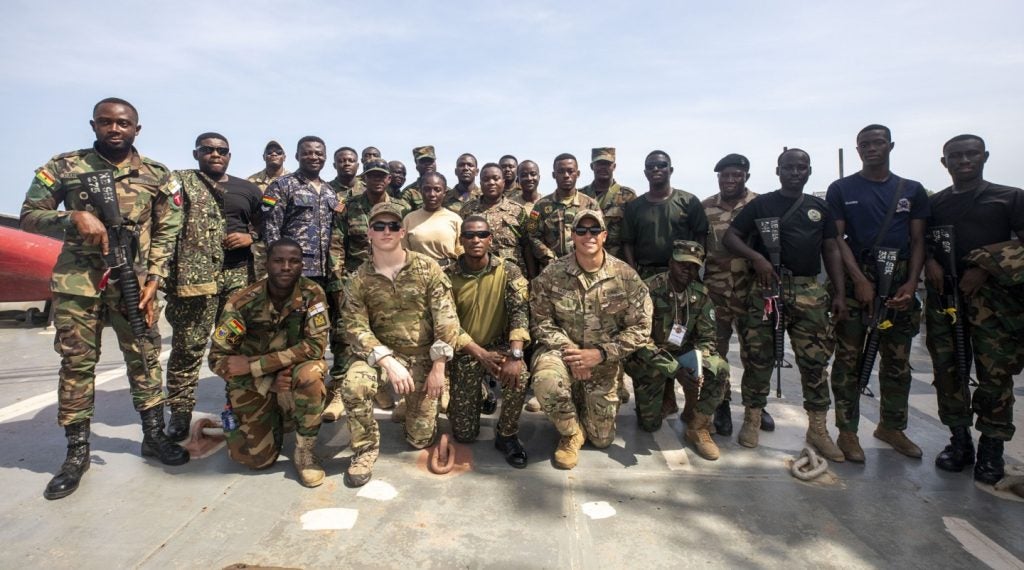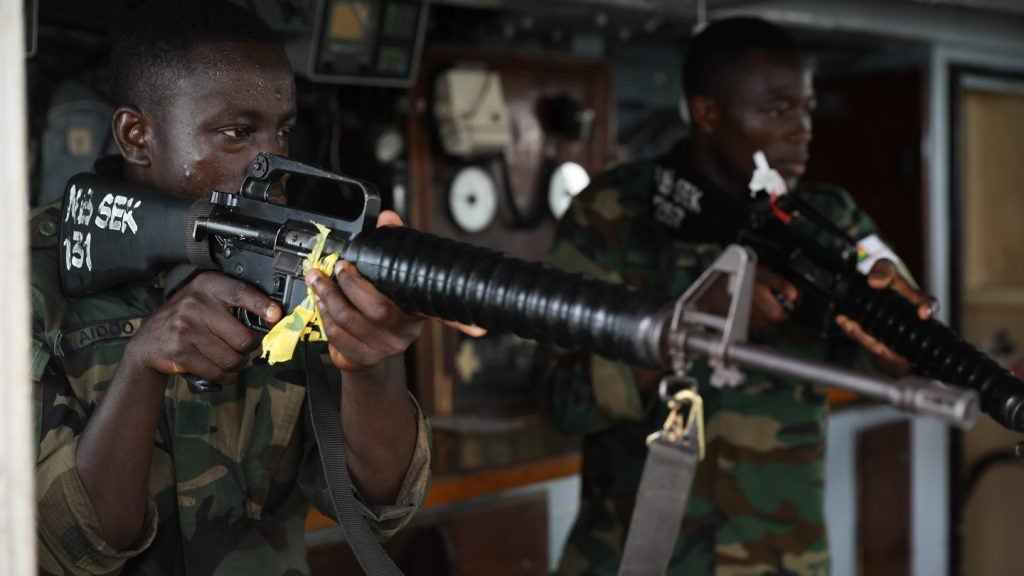US and Nato military trainers have recently assisted countries from West Africa further develop their maritime interdiction capabilities in order to improve security in the Gulf of Guinea, an area that has been historically rife with piracy and threats from non-state actors operating in the region.
Conducted as part of the ongoing Obangame Express 24 exercise being led by the US Navy for Gulf of Guinea nations, a total of 111 participants from Benin, Côte d'Ivoire, Democratic Republic of the Congo, Ghana, Greece, Guinea, Liberia, the Netherlands, Nigeria, Republic of the Congo, Sierra Leone, Togo, and the US attended lectures, practiced maritime security tactics, and undertook maritime-related drills.

The training took place over a five-day period as part of the US Naval Forces Europe-Africa (NAVEUR-NAVAF)’s Obangame Express 2024 at the Ghana Western Naval Headquarters in Sekondi.
According to a US Navy release, representatives from the US Coast Guard’s Tactical Law Enforcement Team (TACLET), Royal Netherlands Marine Corps (Corps Mariniers) Reconnaissance Sniper Team, Nato’s Maritime Interdiction Operations Training Centre, and INTERPOL led a robust series of training events in Sekondi.
French interpreters from the Royal Netherlands Army provided translation of the lessons to more than 50 personnel from five French-speaking West African nations.
Exercise Obangame Express 2024: maritime interdiction
During the first two days of the event, participants rotated between four stations covering hallway-clearing procedures, room-clearing procedures, and tactical casualty care treating wounds and major injuries. These events were mainly taught through joint instruction by the US Coast Guard and Royal Netherlands Marine Corps.
In addition, two Greek Navy personnel from Nato’s Maritime Interdiction Operational Training Centre (NMIOTC)’s mobile training team also joined the multinational contingent, the US Navy stated.
The following two days of training focussed on learning about initial maritime crime scene investigation and evidence collection, as well as applying this to a shipboard setting. Participants embarked on the Snake-class patrol ship GNS Ehwor (P 37) and Cutter-class patrol ship GNS Anzone (P 30) to further refine maritime interdiction and close-quarter combat (CQC) skills.
On the final day of instruction, students once again embarked aboard Ghana Navy ships and small boats to further test skills and techniques learned during the exercise.
“In the case of maritime security in the Gulf of Guinea, it is very important that each nation has very good skills in order to cope with the threats of the area,” said Royal Netherlands Navy Capt Idzerd van Eysinga, the Netherlands Defence Attaché for West Africa.
“They need to train maritime interdiction procedures to work together internationally and ensure interoperability. Because of fast evolving threats in the region, they need to continue to train together,” van Eysinga added.
The US Navy states that Exercise Obangame Express, now in its 13th year, works to bolster Africa’s Yaoundé Code of Conduct, intended to provide a framework and governing instruction on maritime coordination through West and Central Africa.









